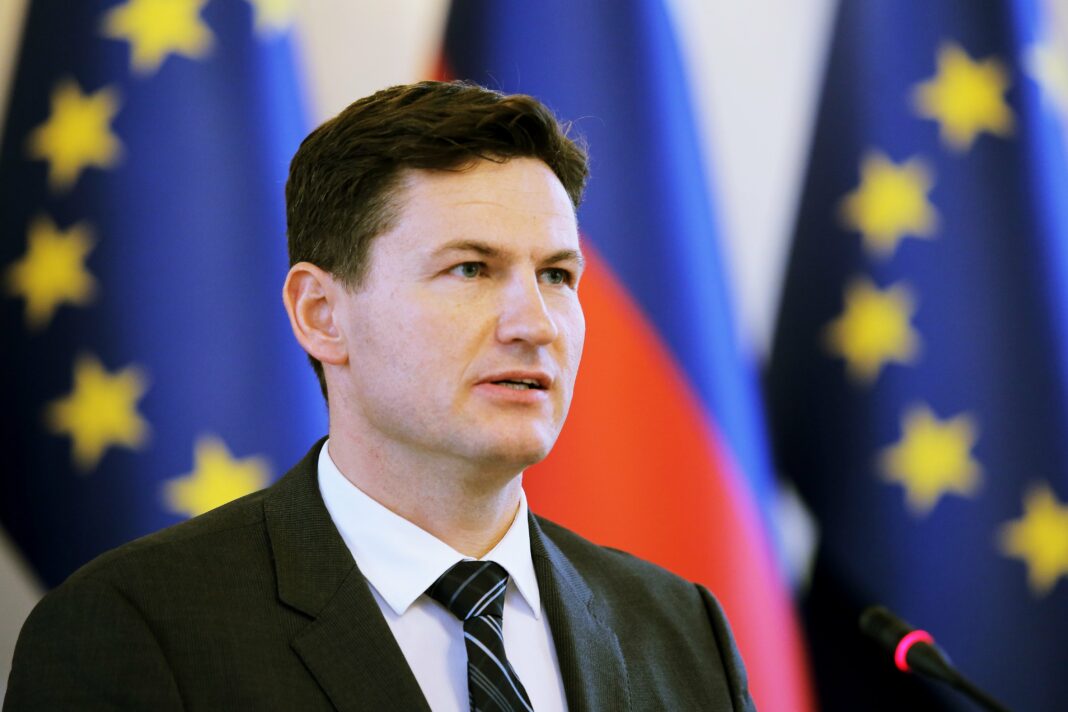By: Gal Kovač (Nova24TV.si)
Slovenian judiciary ranks among the highest violators of human rights within the European Union. An analysis of the European Court of Human Rights reveals that between the country’s independence and 2021, at least one human right was violated in 342 judgements in Slovenia. Based on publicly available data, only Malta fares worse. The Slovenian public is not adequately informed about these alarming results, as highlighted by Dr Jurij Toplak in a recent case. Slovenia has once again been convicted, with state authorities notified, but the general public remains unaware.
“When the European Court of Human Rights (ECHR) decides that Slovenia has violated human rights, state authorities are aware of the judgment but do not inform the public. As a result, people are unaware that Slovenia has been convicted in Strasbourg. For many years, I have informed the public about ECHR judgments and violations. In recent years, I have stopped informing the public, and the authorities, STA (Slovenian Press Agency), and the media do not do so either despite numerous judgments against Slovenia. People are deprived of important information about the state of the rule of law and human rights in Slovenia,” he wrote in a public statement.
In his statement, Toplak informs that Slovenia has been convicted once again because courts still fail to conduct public hearings. “On July 6th, 2023, the ECHR found a violation of fair trial standards because the courts did not hold public hearings when Mr. Jure Letonje received a fine for sitting on a police car. The Constitutional Court did not recognise the violation of European law. The ECHR’s judgment is a rebuke to the Constitutional Court and the Slovenian judiciary, as the ECHR and legal experts have been explaining for over 15 years that this constitutes a violation, but the Constitutional Court fails to understand. The Slovenian authorities were informed about the judgment, but the news did not reach the public,” the lawyer states.
“State authorities like to inform the public when Slovenia does not violate rights in a particular court case, but non-violation is expected and nothing exceptional, just as it is not something extraordinary that food in a canteen is not poisoned or that there is no incident in a school,” concludes Toplak.
Toplak then addresses an appeal to the Ministry of Justice, the State Attorney’s Office, and other state authorities that receive information from the ECHR regarding judgments with violations, urging them to inform the Slovenian Press Agency (STA) and the public about the identified human rights violations in Slovenia, thus contributing to the rule of law.
Violation of human rights comes at a cost
The violation of human rights by Slovenian courts carries not only a cost in terms of destroyed human lives but also in terms of the regression of democratic and legal standards and millions of euros. Human rights violations have cost Slovenian taxpayers approximately 300 million euros in the form of compensations that the state had to pay to its victims. The price is high in terms of the regression of democratic standards. It is worth mentioning the Patria case, in which the Slovenian judiciary convicted the leader of the Slovenian Democratic Party (SDS), Janez Janša, without evidence, with the apparent intention of influencing the democratic process. Janša commented on the dismal results of the judiciary, stating, “There is no democracy without an independent judiciary that applies equal measures to everyone and protects and defends human rights, not the other way around. Slovenian judiciary is at the forefront in terms of human rights violations in Europe.”
The latest episode of the degradation of the rule of law was witnessed in the case of the public broadcaster (RTV), where the current government usurped the public broadcaster by adopting an amendment to the RTV Act, which effectively terminated lawfully assigned mandates of management bodies. The law was passed through an emergency procedure reserved for natural disasters and wartime situations, without proper public debate, and was later confirmed in a referendum. This was followed by a suspension by the Constitutional Court, then one of the most degrading episodes in the history of the Constitutional Court. After intense political pressure from both the political leadership of the country and European Commissioner Věra Jourová, who visited the Constitutional Court, the court lifted the suspension, stating that it could not substantively decide on the matter.
Totalitarian Continuity
Dr Tamara Griesser Pečar is convinced that the reasons for the almost mass violation of human rights should be sought in the unfinished lustration of the judiciary, which allowed for personnel continuity during the transition from a totalitarian to a democratic system, and thus the continuity of the mindset reflected in judgments. As she stated in an interview with a newspaper, in 1995 the Constitutional Court found that “the former Yugoslav and, within its framework, Slovenian constitutional and state institutional system, contrary to the traditions of European legal civilisation, did not prioritise human rights and did not establish legal constraints on state power and its violence.”
How this continuity is reflected in the work of the judiciary can be seen from the table below.
The prevailing majority of applicants to the ECHR are successful. Out of 373 judgments examined by the ECHR until 2021, violations of human rights were found in 342 cases. In addition to these, there were four additional judgments from 2022 in which violations of human rights were again established, as shown in the table below.
Out of the four judgments that were accepted, violations of human rights were once again established in each of them.

